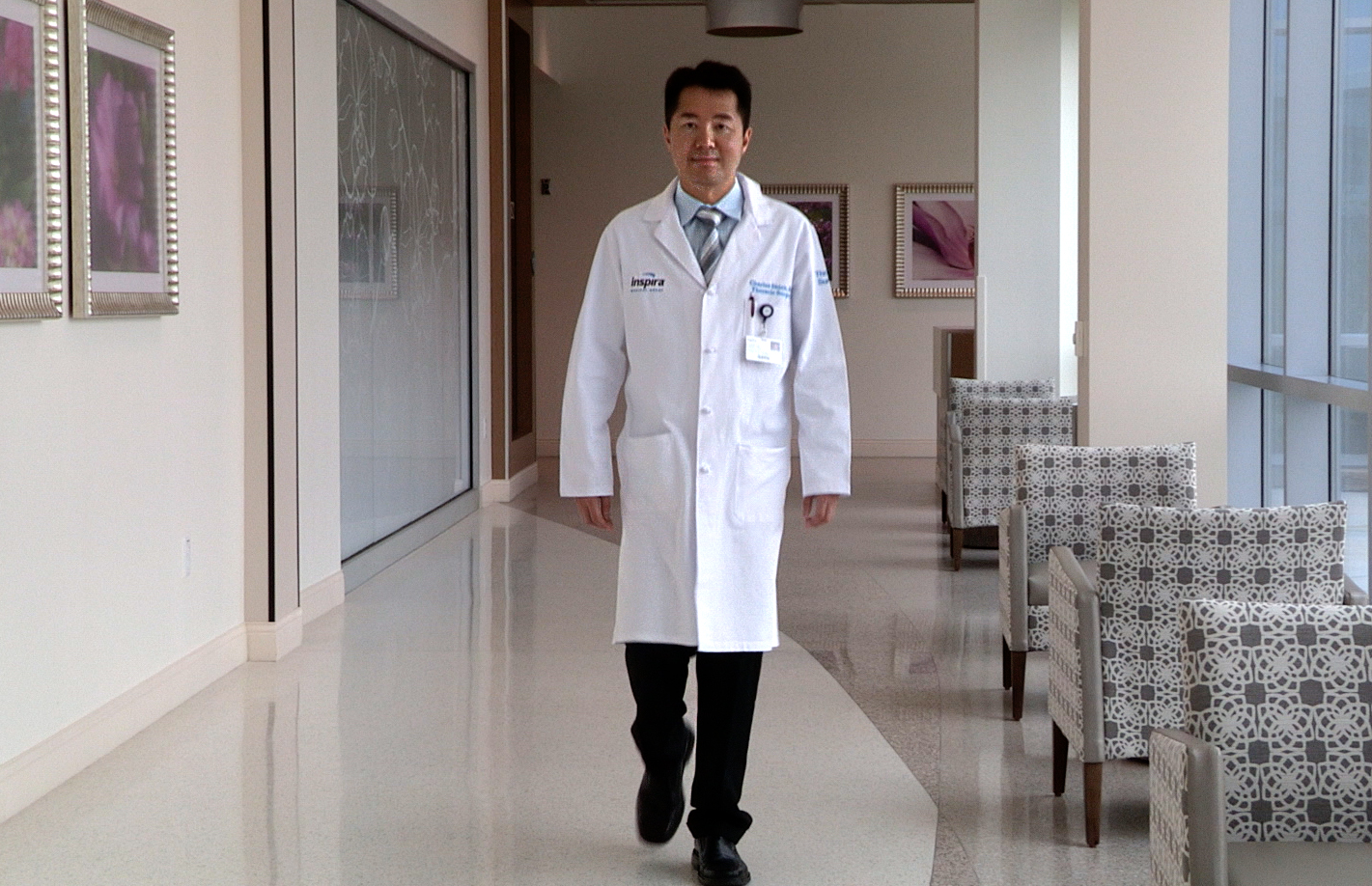Intuitive’s Ion bronchoscopy system is a robotic platform that could allow for earlier lung cancer...
Read More
President and CEO, Inspira Health

We often take our lungs for granted. We don’t think about how hard they work to keep us breathing all day at our jobs, while we exercise, or at night as we sleep. We only notice our lungs when it becomes too difficult to breathe. Each October we recognize National Healthy Lung Month to increase awareness and education around this very important topic.
To prioritize your lung health, there are several things you can start doing today to take care of them now and for decades to come.
Prevent illness.
As we have all become more aware of during the pandemic, infection and illness puts strain on the respiratory system, including the lungs. To avoid illness that can result in a serious infection, wash your hands regularly, avoid crowds and social distance, wear a mask, and get your flu shot.
Exercise regularly.
Physical exercise doesn’t just make your muscles stronger – it makes your lungs stronger too. All adults should aim to be moderately active for a total of 30 minutes a day for five days a week. This could be going on a brisk walk or run, doing yoga or Pilates, or even cleaning your house. You don’t have a train like a professional athlete to improve your lung strength!
Quit smoking.
According to the American Cancer Society, lung cancer is the number one cause of cancer deaths in both men and women in the United States, and a staggering 85 percent of the lung cancer deaths are due to tobacco use. While the stress of the pandemic can make it difficult to quit smoking, and even harder to stick with it, it is the single best thing you can do for your lung health.
The Inspira Quit Center offers free individualized smoking cessation programs with certified tobacco treatment specialists providing one-to-one counseling, in person or over the phone, and group counseling. Nicotine replacement therapy is also offered.
Get screened.
Even if you show no signs of lung cancer, it could be life-saving to get screened, as early detection is critical to identifying and beating the disease. In fact, screening for lung cancer using low-dose CT scans can lower the chance of dying from lung cancer by 20 percent, according to the National Lung Cancer Screening Trial.
You should be screened for lung cancer if you are between the ages of 55 and 77, asymptomatic (no signs or symptoms of lung cancer), have a tobacco smoking history of at least 30 pack-years, or are a current smoker or have quit smoking within the last 15 years.
Earlier this year, Inspira welcomed Charles Shieh, M.D., a thoracic surgeon and medical director of our lung cancer program. We also invested in new technology, navigational bronchoscopy, a minimally invasive, highly effective tool that functions almost like a GPS for our physicians to locate and diagnose lung cancer as well as treat smaller nodules.

I’d like to share a story from a gentleman who credits Inspira staff for making sure that that he didn’t miss his son’s wedding—and that he could enjoy the joyful day.
With 72 hospitalizations in eight years and two long-standing chronic health conditions (diabetes and gastroparesis), 49-year-old Joe McGurk of Glendora was a frequent patient—but not at Inspira. Two weeks before the wedding, his hemoglobin count dropped so low he feared he would miss the big day. McGurk needed a blood transfusion, and he needed it quickly. He called his local providers, but the process seemed to be drawn-out.
His next call was the Infusion Department at Inspira Medical Center Mullica Hill. There, quick work by the infusion team enabled him to get his urgently needed blood transfusion – the next day.
"What blew my mind the most is that I had never been treated by a doctor affiliated with your hospital or stepped foot in your hospital," said McGurk. "But when I called your place, Audrey [Audrey McKeon, coordinator for the cancer center] said, 'Let me get your phone number and see what I can do, or I'll refer you to someone who can help you.'"
Audrey called Dr. Tubb’s office and he and his staff Meghan Clark and Kelly Pinero were able to see Mr. McGurk the next day. The transfusion not only enabled McGurk to attend the wedding, but joyously participate in it. And thanks to ongoing aggressive treatment of his anemia at Inspira, he now feels better than he has in a long time.
"I feel like superman," he explained. “I haven't felt this good in so long, I can't tell you when."
 by Haley Richter Photography
by Haley Richter Photography

Intuitive’s Ion bronchoscopy system is a robotic platform that could allow for earlier lung cancer...
Read More
Long COVID refers to a range of persistent symptoms that can linger for weeks, months or years after...
Read More
Quitting smoking is one of the most impactful decisions you can make for your health. Inspira doctor...
Read More